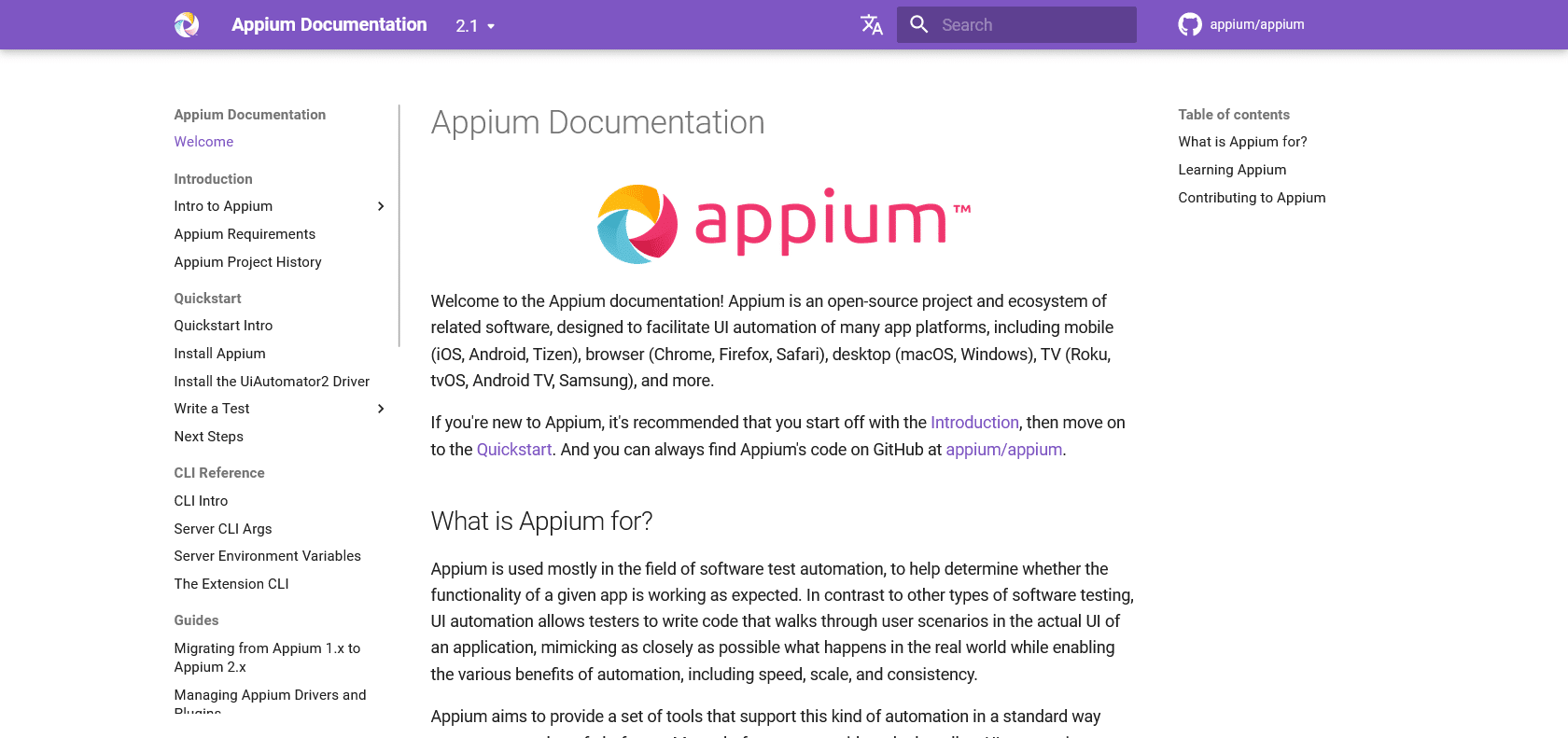Discover 7422 Tools

Expansive mobile app automation for developers.
Appium: The powerful open-source automation tool for mobile app testing. Automate interactions, write test scripts in multiple languages, and easily run tests for CI/CD processes.

Appium is a powerful open-source automation tool that focuses on mobile app testing. With Appium, developers can automate interactions with mobile apps on both iOS and Android devices. This makes it incredibly convenient for developers to accurately test their mobile apps, ensuring a seamless user experience.
One of the standout features of Appium is its support for a wide range of mobile app types. Whether the app is native, hybrid, or web-based, Appium can handle it all. This versatility makes Appium an excellent choice for testing any type of mobile application.
Another great feature of Appium is its flexibility in terms of programming languages. Developers can write test scripts for their apps in any language that runs on their machine. This includes popular languages like Java, JavaScript, Ruby, Python, and C#. This flexibility allows developers to work with familiar languages and frameworks, making it easier for them to create effective and efficient test scripts.
Appium follows the W3C standard for mobile app automation, making it compatible with multiple platforms. Developers can write test scripts once and use them across different platforms, saving time and effort. This compatibility makes Appium a valuable tool for continuous integration and continuous delivery processes. Developers can easily run tests on multiple devices and platforms, ensuring consistent app performance across different environments.
By using Appium, developers can save both time and money while maintaining high-quality mobile apps. Its comprehensive automation capabilities, language flexibility, and compatibility across platforms make it an indispensable tool in the mobile app testing process.
Interact with iOS and Android apps
Multilingual test script writing
Seamless testing across devices and platforms
Suitable for continuous integration and delivery
Appium

Join the AI revolution and explore the world of artificial intelligence. Stay connected with us.
Copyright © 2025 AI-ARCHIVE
Today Listed Tools 345
Discover 7422 Tools